Hard to believe that one of our west coast icons will turn 69 this year! Most people who have grown up in the west recognize London Drugs as one of the most innovative and best places to shop, plus they have a drug store! To London Drugs, the Drug Store has always been the heart of their business since they started with one store downtown on Main street.
In reality this story is also about us, as consumers, what we’ve needed and how our needs have changed over the years, as much as this is story of a very successful retailer who has responded to meet our needs and keep us healthy and happy.
Hope you enjoy this look back on the history of us all growing up (hangin’ out at the Drugstore) together!
The Story of London Drugs
The year was 1945: the soldiers were coming home, Zoot Suits were in style and Bing Crosby and Frank Sinatra crooned over the radio waves.
In this new era of hope and expectation, London Drugs was born. It was a humble, community drugstore-just 1000 square feet-but this little store on Main Street, Vancouver, was given a big name. The store was named after London, England, the home of Canada’s King, George VI. In the months after World War II, London Drugs carried the promise of peace and prosperity.
Today, London Drugs has stores in more than 35 major markets throughout British Columbia, Alberta, Saskatchewan, and Manitoba. The pharmacy is still the heart of our business, but today we also offer a full service computer department, cosmetics ranging from lipgloss to high-end face creams, furniture, cameras, high quality photo finishing, cordless phones and plasma televisions. More people buy their small appliances in London Drugs than any other place in Western Canada. All told, we serve over 45 million customers each year, and we are still growing.
How did a small Vancouver drugstore become such an integral part of Western Canadians’ lives? This is the story of London Drugs.
Start Small, Dream Big
Even in its early days, London Drugs was a different sort of drugstore. Soon after the store opened, we discovered our next door neighbour, a camera store, was closing shop and needed to sell its stock of cameras.
In the retail world of 1940s Vancouver, shops were much more specialized than they are today. Customers would buy meat at the butcher, medicine at the pharmacy, and newspapers at a newspaper stand. Cameras were definitely not purchased in a pharmacy.
Yet the opportunity seemed good: cameras at a discount price, and customers who were used to buying them just next door. London Drugs took a risk. Finding space on the shelves of the thousand-square-foot store-roughly the size of a London Drugs camera section today-the little store stocked cameras at great prices.
Now customers had two reasons to come to the little drugstore. The risk paid off and over the last sixty years, London Drugs has developed a reputation for selling quality photographic equipment at great prices.
Selling cameras was unorthodox, perhaps shocking considering the retail landscape at the time. But this innovation was just the beginning of the London Drugs revolution. Driving this revolution was the very heart of the business: the pharmacy.
The Pharmacy: The Heart of London Drugs
From the day it opened its doors, London Drugs did business differently. In post-war British Columbia, the pharmacy profession was one of tradition. There were ways that a pharmacy did business: drugs would be dispensed during regular office hours and there was an agreed-upon dispensing fee among pharmacists.
London Drugs did not buy into the attitude of “tradition for tradition’s sake.” First on the agenda: drugstore hours. People got sick on the weekends, people got sick in the evenings, it only made sense that a drugstore would have medicine available weekends and evenings.
In 1945, the first London Drugs store opened for extended evening hours and weekends, including Sundays. It was a gamble: what if customers boycotted the store because it was open on Sunday? There was no need to worry. The community in central Vancouver appreciated the extended hours and the little drugstore thrived.
In the 1960s and 1970s, London Drugs began to expand into new municipalities, some of which were not as accommodating. In cities like Victoria and North Vancouver, the non-medicinal aisles were roped off to Sunday shoppers. The local governments felt that shopping for health care items was acceptable, but anything else was strictly forbidden. In Red Deer, London Drugs fought a decade-long battle to provide extended hours for their customers. In each market, no matter the initial resistance, London Drugs won the battle to offer this important service.
The fight for extended shopping hours was not the only battle. In the 1950s, all pharmacists charged the same dispensing fees. The customer was faced with no choice: no matter where they went, their prescriptions cost the same. London Drugs decided to break with tradition and offer discounts on dispensing fees. For the first time, Vancouver residents had a choice to pay less for their prescriptions.
The business exploded, and not just in the geographic area of the London Drugs store. People from around the province filled their prescriptions long distance. Finally there was an affordable alternative.
They Were A-Changing
The 1970s looked so different from the first days of London Drugs: now its customers sported bell bottoms and shaggy hair. No longer one little store on Main Street; there were 10 stores sprinkled throughout the Lower Mainland. Bigger changes were right around the corner.
In 1975, London Drugs was sold to Daylin Corporation. The next year, that company ran into financial difficulties in the US branch of its business, and decided to put London Drugs up for sale.
Other pharmacy companies were interested, of course, but the chain had caught the eye of entrepreneur Tong Louie. Mr. Louie was the head of the HY Louie Group, owner of a chain of grocery stores in Vancouver. He was intrigued by London Drugs; his advisors were not. Pharmacies and grocery stores were different sorts of businesses, it would not be a good fit for the HY Louie Group. In spite of this, Mr. Louie moved quickly and purchased London Drugs over the Christmas holidays in 1976. The night the deal was finalized, Mr. Louie went for dinner with close friends and family and mentioned casually, as he placed his napkin on his lap, “Today I purchased London Drugs.”
With those humble words, Mr. Louie sparked a new period of growth and improvement. With the HY Louie Group at the helm, the new mantra for London Drugs was simple: do it bigger and do it better.
First was the task of expanding, both within BC and, for the first time, beyond the provincial border into Alberta. The first Alberta store opened in Edmonton and was an instant success. In the next ten years, London Drugs tripled its number of stores.
Next was the task of increasing the types of products available in the store. Small kitchen appliances were added to the shelves, as were consumer electronics. A focused effort began to provide quality cosmetics for London Drugs’ shoppers. At the time, high-end cosmetics were sold exclusively in department stores. The London Drugs cosmetics department consisted of four or five peg boards of cheap products.
It was a hard sell to convince cosmetic companies to put their products in a drugstore. But one by one, they agreed, and big names like Elizabeth Arden, Shiseido, and Lancôme were added. What began in 1975 is now a full-scale revolution in the way cosmetics are sold. Customers demand value as well as brand names, and London Drugs provides both.
Under the HY Louie Group, an infectious enthusiasm permeated London Drugs. With enthusiasm came big ideas, and one of the biggest was right around the corner: one-hour photofinishing.
One Hour Revolution
London Drugs sold cameras from its early days on Main Street and by 1980, customers knew the store was a go-to place for quality photo equipment. It seemed a natural offshoot to develop the photos taken by London Drugs cameras.
Up until 1980, amateur photographers had to send their film to a developing lab in order to get their pictures. From the customer’s perspective, it took days to develop a roll of film. On the horizon was the seed of an idea: by moving photofinishing labs into the store, photos could be ready in a fraction of the time.
London Drugs made a bold move and contacted one of the top manufacturers of photofinishing equipment. London Drugs would work with them to develop the one-hour equipment, and in return, every London Drugs store would provide one-hour photofinishing. It took just three years to put in place, and by 1984, every store provided the one-hour service.
In these early days, the process to develop film quickly and on-site was in its infancy. By providing the trained staff and the experience of printing thousands and thousands of photos, London Drugs has helped fine tune this equipment so that all one-hour photo labs print out a better product.
When digital photography came onto the scene in the 1990s, other retailers saw the end of the one-hour photo lab. Now that customers could print out their own photos, developing film would go the way of vinyl records.
At a time that other retailers were pulling out of the photofinishing market, London Drugs saw an opportunity. If people were taking pictures differently, they would need to print their pictures differently, too. Again, they worked with equipment manufacturers and invested in upgrades that have proven essential in the digital photo revolution.
The new millennium has reaped the benefits of this bold move. With the digitizing of customers’ film, the launch of www.londondrugs.com/photolab, and the introduction of digital photo kiosks, London Drugs has been at the forefront of the technical revolution that is changing the face of photofinishing.
The technology of the early 1980s would touch more than just photofinishing. A new department was right around the corner, a department that would have been unfathomable just five years before. It was the beginning of the computer age.
Ushering in the Computer Age
In 1983, Wynne Powell, now President of London Drugs, was convinced that the same people who bought cameras and toasters from London Drugs would one day want to buy computers too.
It was a far-fetched idea. In 1983, letters were typed on electric typewriters, spelling errors fixed with correcting tape, and mail went out with a sealed envelope and a stamp. There were rumblings of new developments in Silicon Valley that were making computers smaller and more affordable. Nevertheless, it seemed like a futuristic pipe dream that there could ever be a mass market for personal computers.
With a suitcase full of cash, Mr. Powell travelled to Silicon Valley to convince computer manufacturers to let London Drugs carry their merchandise.
Silicon Valley did not respond with enthusiasm. Computers were sold by specialty computer consultants, they told him, definitely not drugstores. He was shut out by the big manufacturers, but he managed to procure a few obscure brands and when he arrived back in Canada, the London Drugs computer department was born in four stores: Richmond, Broadway, Surrey, and North Vancouver.
Over the years, London Drugs chipped away at the big manufacturers, eventually convincing the likes of Microsoft, AST, and HP to sell directly to London Drugs.
From the beginning, London Drugs was a different sort of computer store, hiring techies instead of sales people to staff the department. The emphasis was to provide an educated resource to the customer, not simply a quick sell.
This resource has become increasingly important as computers become more complex. London Drugs decided to formalize the role of in-store technicians. Now there would be a designated technician in every store with threshold qualifications. London Drugs chose the internationally recognized Computer Technology Industry Association and its A+ Certified status for every technician in every London Drugs store.
In the 1990s, London Drugs was established as a computer retailer, a photofinishing juggernaut, and a great place to buy blenders and cameras. Once again, though, the heart of the business remained the pharmacy, and a revolutionary approach to patient care was developing.
Health Care for the New Millennium
In the 1990s, the Baby Boomer generation and London Drugs turned 50. Health care providers, including pharmacies, would have to face massive changes as this large group of people aged.
Like the Baby Boomers themselves, London Drugs has the revolutionary spirit of its generation. A new approach to pharmacy care would have to be taken: better information means better care, which leads to better health.
First, every London Drugs pharmacy was remodelled to make space for pharmacists and patients to have in-depth discussions. The pharmacist no longer stood behind the counter, high on a platform looking down on the patient. Consultation desks were set up so patients could ask the necessary questions and would be afforded their privacy.
Next, London Drugs looked to new technologies to make its patients more informed. For people who were not health care providers, it was exceedingly difficult to find clear information on health issues. London Drugs set out to fill this need by taking careful steps. It was imperative that customers receive only the most reliable, unbiased health information.
Before www.ldhealth.com was launched, London Drugs vetted all its information through an independent committee called Practice Solutions. Now part of the Canadian Medical Association, this committee is comprised of health care professionals with no affiliation to drug companies. With quality information on hand, www.ldhealth.com went online in the 1990s. The information databank has increased exponentially in the last decade, and the number of hits has likewise reached numbers unforeseen when it was first launched.
The website was the beginning of a new emphasis in health care that would define London Drugs in the new Millennium. Under the new Better Care program, clinics are offered at every London Drugs on a variety of topics. At different times of the year, patients can attend clinics on the flu, back health, bone health, diabetes, asthma and heart health.
Pharmacists undergo specialized, professional training to assist patients with diabetes and anticoagulation treatment, and in every market, patient care specialists are available to provide in-depth medication reviews to patients who need help understanding what they are taking.
[highlight]BTW: Did you know that you can place an order at London Drugs online and then go pick-up IT up from the store of your choice when you can drop by to pay, pick up the order and save your time and peace of mind. Nice job London Drugs![/highlight] [dropcap size=”4″]G[/dropcap]et more info on In-Store Pick-ups and Home Delivery Here: http://www.londondrugs.com/Shipping-Delivery/shippinganddelivery,default,pg.html

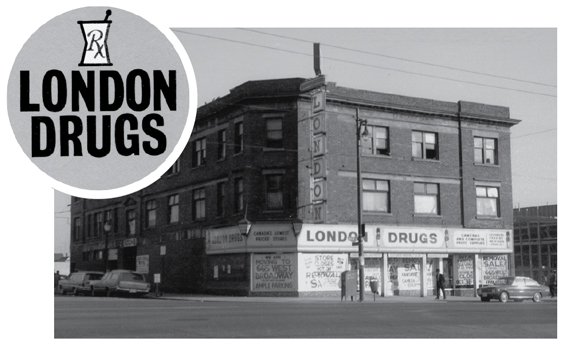
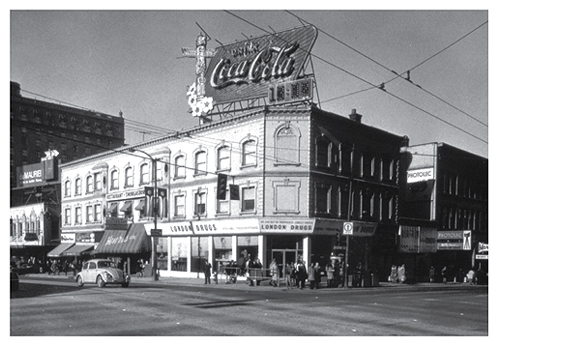
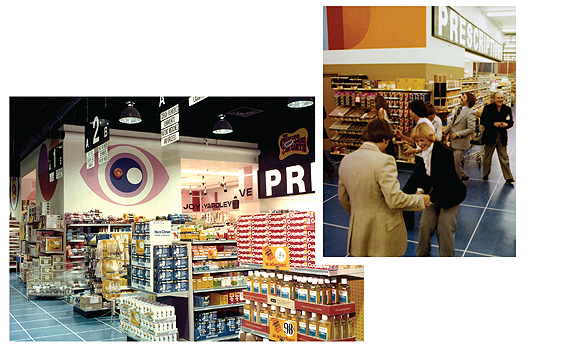
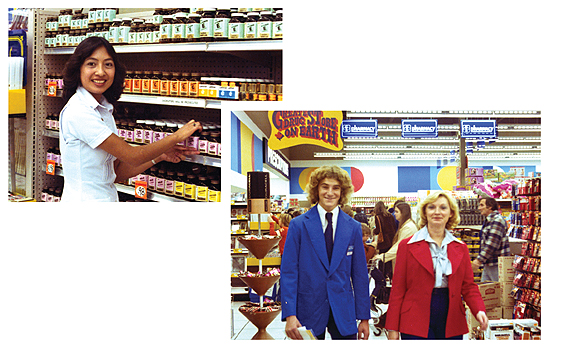
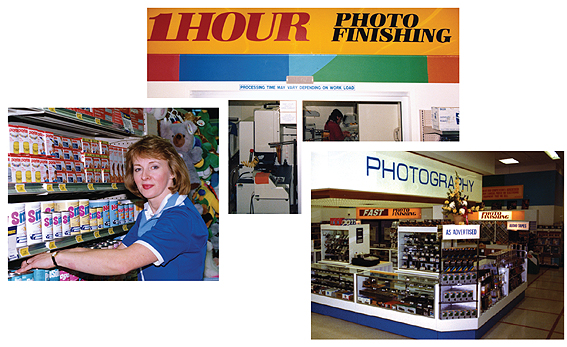
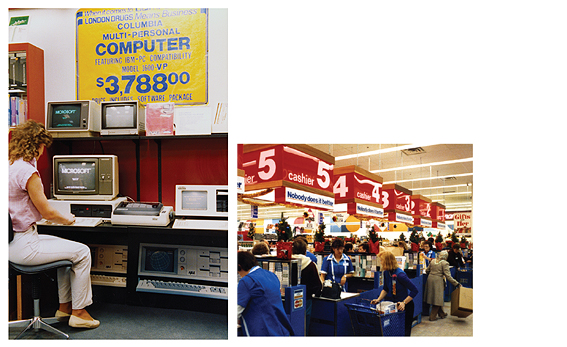
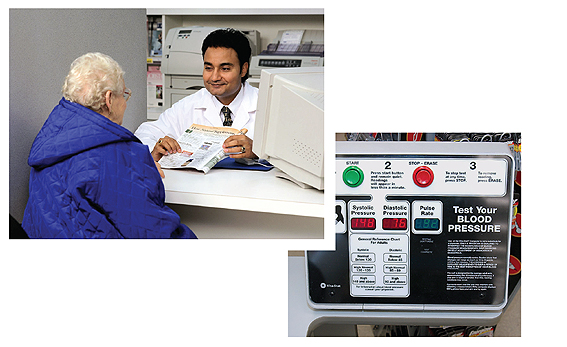
Leave a Reply